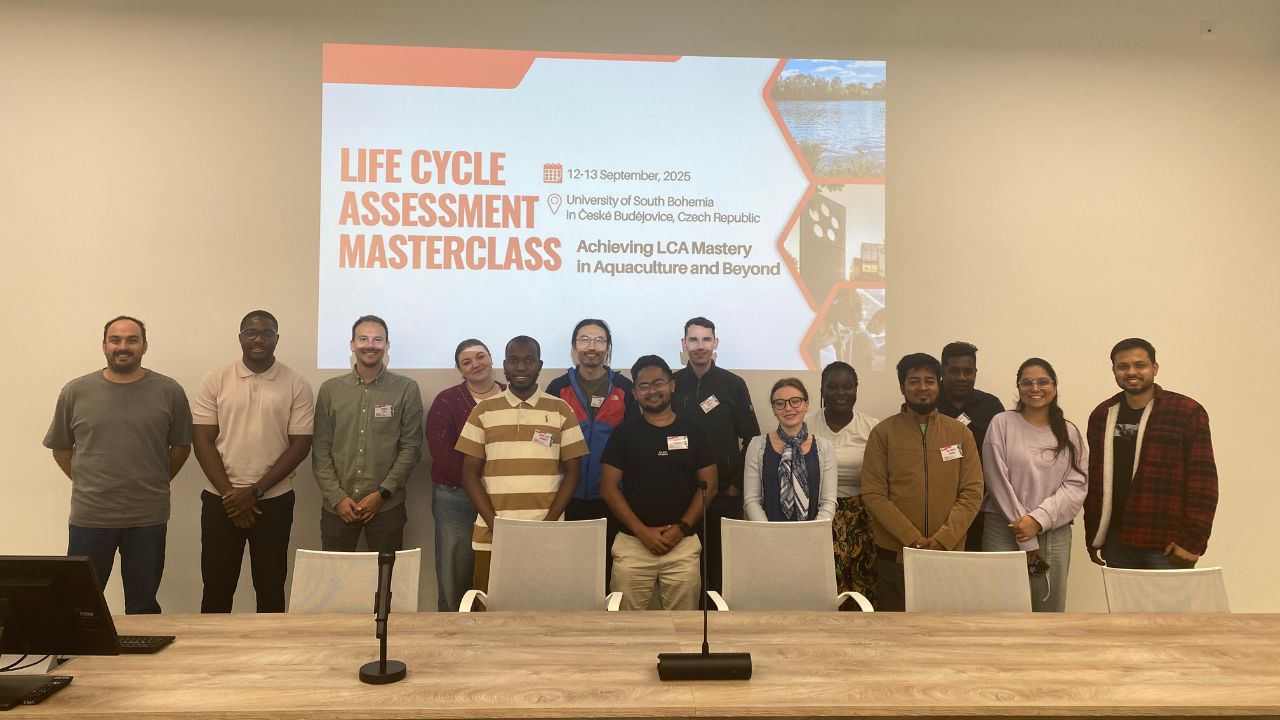Empowering Research Through LCA: Insights from the University of South Bohemia Masterclass
To broaden and develop the professional skills of our team members and widen their scientific network and cultural experiences, the BRT encourages its students to embark on various internships, academic mobilities, and development opportunities. These opportunities are connected to their scientific journey and enable them to have hands-on, practical and in-field experiences, which are critical to their future careers.
Our PhD student, AbdulAzeez Shobajo, shares insights from his experience at the University of South Bohemia in České Budějovice.
Enjoy reading as he takes you on his journey!
How many ISO standards are relevant for conducting a LCA? And what are they?
Do you want to know? I’ll tell you in a bit!
I had the privilege of joining a group of brilliant researchers, young scientists, and sustainability professionals at the Life Cycle Assessment (LCA) Masterclass hosted by the University of South Bohemia in České Budějovice. The training gathered participants from several universities and international research institutions, who shared a collective interest in sustainable development and environmental impact assessment.
The University of South Bohemia has always been a place I admired, and being there for the masterclass was a refreshing blend of academia, collaboration, and cultural expedition.
The program began with a warm welcome session followed by an introductory lecture on The Environmental Footprint of Aquaculture. These sessions set us up right into the masterclass with the right practical knowledge. We were then introduced to Life Cycle Assessment methodology, where we discussed the core principles of LCA, understanding how to define system boundaries, choose functional units, and identify impact categories. The facilitators used relatable examples from food production systems, renewable energy technologies, aquaculture and material manufacturing to explain how system design can influence environmental outcomes.
We also thoroughly examined different LCA scopes (Cradle-to-Gate, Cradle-to-Grave, and Cradle-to-Cradle) and how these perspectives alter the interpretation of a product’s environmental footprint. An interesting discussion followed on how policymakers, industries, and researchers can use LCA as a proactive tool for integrating climate and environmental considerations into decision-making.
One of the major highlights of the program was the hands-on training using OpenLCA and SimaPro software. Under the guidance of Dr. Chisenga Emmanuel Mukosha and Dr. Jaroslav Bernas, participants were grouped into teams to model simplified product systems. In my team we examined the life cycle impact of planting tomatoes under open field and green house systems.
During these sessions, we learned how to construct process flow diagrams, manage life-cycle inventory data, and interpret impact assessment results. The practical exercises gave us a deep appreciation for how data quality, assumptions, and allocation methods affect final results.
In the evening, we had a networking dinner at the university’s microbrewery where we enjoyed traditional South Bohemian dishes and local desserts. We were also given an introduction to the LCA Lab of the Faculty of Agriculture and Technology led by Dr. Jaroslav Bernas. It was awesome to learn about their collaborations with other Czech and international institutions, their ongoing projects on assessing the environmental footprint of agricultural systems, renewable energy pathways, and waste valorization processes, as well as their previous research outputs that have informed regional sustainability policies and industrial practices.
At the end of the masterclass, participants took part in an impact assessment quiz to evaluate their grasp of the concepts. I’m delighted to share that I aced the final assessment test with an unbroken streak and ranked top among all participants. It was both humbling and rewarding to see that the effort I’ve put into understanding LCA over the years, through research, seminars, and personal studies truly paid off in this context.
I’m sincerely grateful the organizers and facilitators of the masterclass, and most especially to my supervisor Assoc. Prof. Dr. Hynek Roubík, for making this experience a memorable one.
As a researcher in sustainable development, I look forward to applying the knowledge gained from this masterclass to ongoing and future projects on the LCA of biogas technologies, waste valorization, and bioresource utilization.
Our upcoming publications will integrate Life Cycle Assessment on how they can shape smarter, climate-conscious decisions across industries, contributing to both environmental protection and economic sustainability.
And yes! There are two main ISO standards for conducting a LCA: ISO 14040 and ISO 14044.
For more details on BRT activities, subscribe to our newsletter or follow us on social media for regular updates and highlights!


